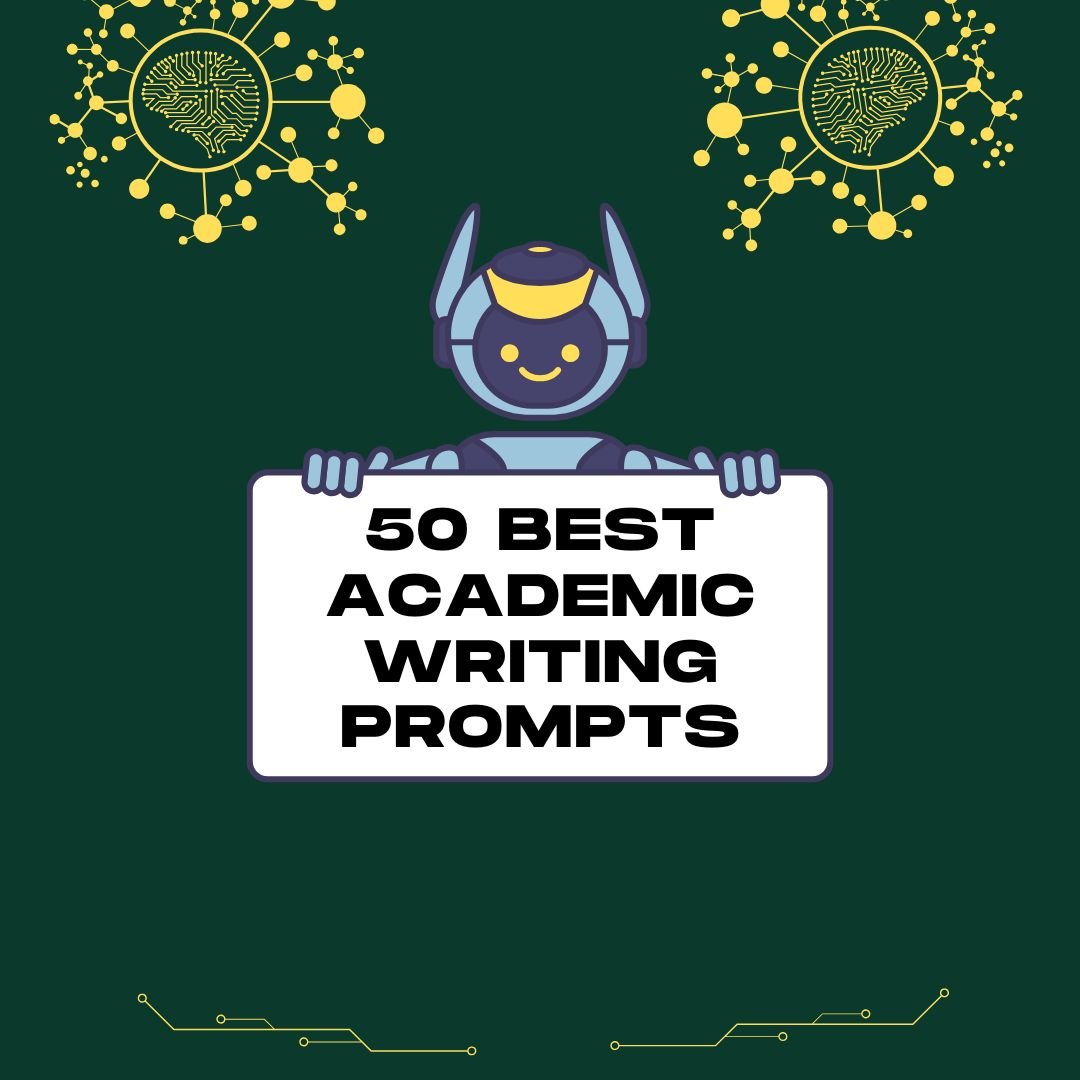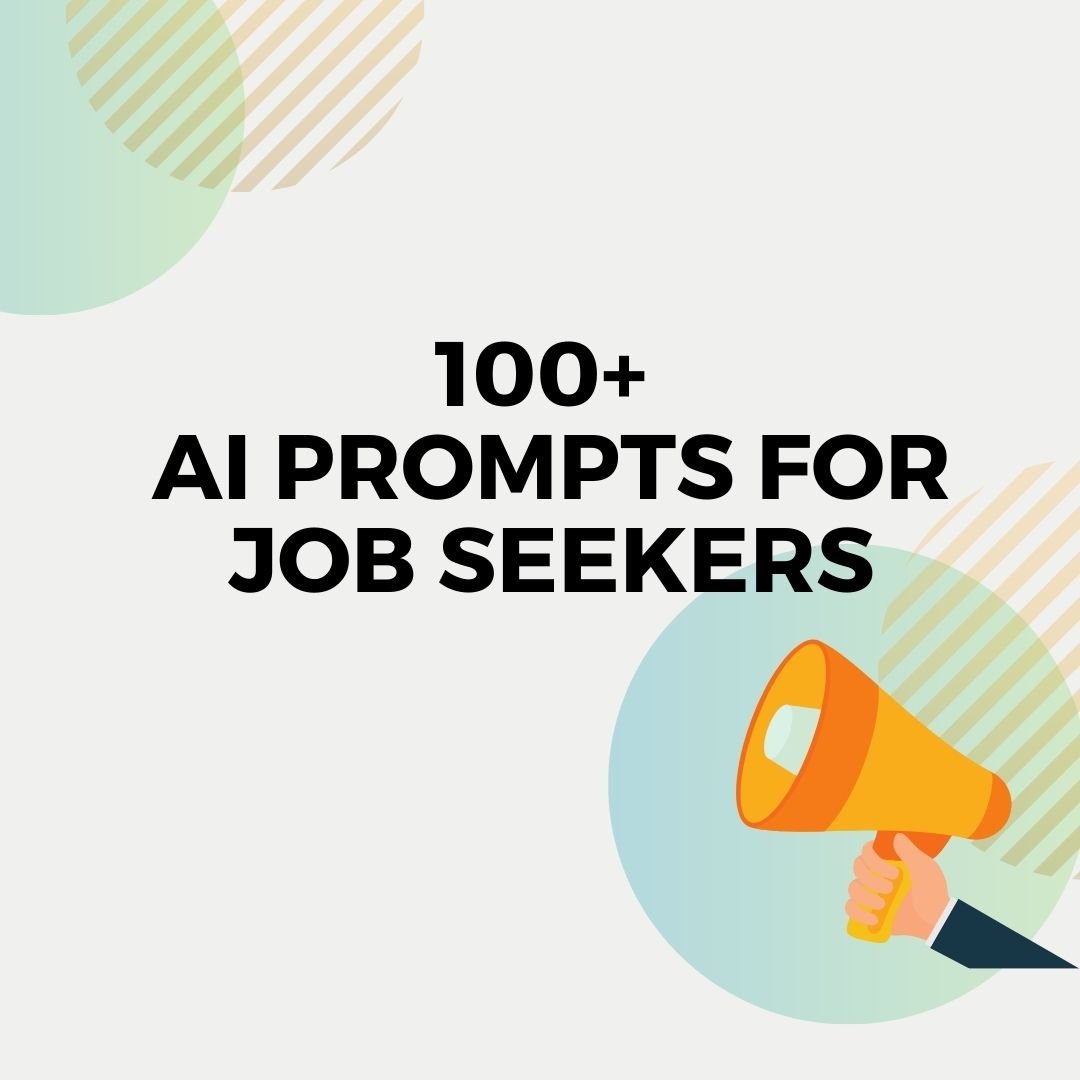
100+ AI Job Prompts for Seekers
Posted in :
In today’s competitive job market, leveraging AI Job Prompts using tools like ChatGPT can give job seekers an edge—if used effectively. However, there are also ways these tools can be misused, leading to generic or uninspired job applications. This blog post outlines both the best and worst ways to use AI as a job seeker, helping you maximize its potential in your career journey.
Worst Use Case: Believing Generic Job Prompts Will Get You the Job
Many job seekers stumble upon viral LinkedIn posts with one or two-sentence prompts promising to revolutionize your job search. These posts often claim that a simple command can help you:
- Research a company
- Generate a personalized cover letter
- Prepare for interviews
Unfortunately, these methods are often written by non-job seekers who haven’t tested their advice. Instead, they are designed to generate hype and promote products. The result? A generic and ineffective job application that fails to impress hiring managers.
Best Use Case: Researching Companies Like a Pro
ChatGPT shines when tasked with helping you thoroughly research a company. For example, here’s a strategic prompt:
“Assume the role of a job search coach with 20 years of experience. I’m interviewing for the Product Marketing Manager position at Stripe. Your task is to research and provide: Stripe’s core business model, how they make money, their top competitors, how their products are differentiated, and specific tips for candidates applying for this position.”
This approach focuses on the essential information needed for the initial research phase of your application, following the 80/20 rule: only ask for what’s most relevant. With the output, you can craft a tailored application and stand out from other candidates.
Worst Use Case: Using AI for Entire Cover Letters
One major pitfall is relying on AI to write an entire cover letter with a single prompt. The result is often generic and robotic, as AI struggles to solve the nuanced problem of creating personalized, engaging content.
Best Use Case: Breaking Down the Cover Letter Process
Instead of one generic prompt, use a Chain of Thought prompting technique to create your cover letter in sections:
- The Hook: Start with a compelling opening paragraph.
- Prompt:“Assume the role of an experienced career coach. I will share my resume and the job description with you. Your task is to write an attention-grabbing hook for my cover letter that highlights my qualifications, shows empathy for the company’s challenges, and expresses enthusiasm for the role.”
- Expanding on Experiences: Focus on specific achievements from your resume that relate to the job.
- Prompt:“Write a paragraph that expands on a specific experience from my resume that aligns with the job description and supports my cover letter hook.”
- The Closing: Wrap it up with a concise conclusion.
- Prompt:“Write a closing paragraph for my cover letter that reiterates my strong interest in the role in under 50 words.”
This structured approach results in higher-quality, personalized content that stands out to hiring managers.
Worst Use Case: Relying on Auto-Apply Tools
Many job seekers turn to auto-apply tools marketed as one-click solutions. While they save time, they result in generic applications that lack the personal touch required to impress employers. Tailored applications are always more successful.
Best Use Case: Tailoring Resumes with AI
Instead of auto-applying, use AI to customize your resume bullet points to match specific job descriptions. For example:
- Upload your resume to a tool or platform that integrates AI.
- Share the job description.
- Use prompts like:“Rewrite this bullet point to align with the job description for [specific role].”
This approach ensures your resume highlights the most relevant skills and experiences for each application.
Stealing with Pride: Learning from Winning Formulas
Another powerful use case is leveraging successful templates and adapting them to your profile. For instance, many LinkedIn creators share headline templates that attract recruiters. Use a prompt like this:
“Assume the role of a career coach with 20 years of experience. Based on my resume, create an eye-catching LinkedIn headline.”
By studying and applying proven strategies, you can optimize your professional presence online.
Key Takeaway: AI Complements Your Efforts, Not Replaces Them
AI tools like ChatGPT can make your job search more efficient, but they won’t replace the effort needed to craft personalized applications. The more strategic and intentional you are in using AI, the better your results will be.
Focus on using ChatGPT to enhance your workflow, conduct in-depth research, and tailor your applications. By avoiding shortcuts and taking a thoughtful approach, you can maximize your chances of landing your dream job.
General Resume Building

- “Analyze my resume and tailor it for a [job title] role at [company]. Focus on aligning my skills and experience with their key requirements.”
- “Summarize the strengths and achievements from my resume in a compelling paragraph suitable for a LinkedIn summary or cover letter introduction.”
- “Help me rewrite the responsibilities from my previous job to emphasize measurable achievements and impactful results.”
- “Review my resume and suggest modern action verbs to replace repetitive or outdated phrasing in my experience section.”
- “Pinpoint sections in my resume that could be simplified or rephrased to make them more appealing to Applicant Tracking Systems (ATS).”
- “Identify areas in my resume where I could highlight transferable skills that align with a transition into [new field/industry].”
- “How can I rewrite my resume’s objective/summary statement to grab a recruiter’s attention while emphasizing my expertise in [specific field or skill]?”
- “Critique my resume for formatting, tone, and structure. Suggest improvements that would make it look more professional and engaging.”
- “Suggest industry-specific keywords or phrases that I can incorporate into my resume to optimize it for a [job title] role in [industry].”
- “Identify any gaps or weaknesses in my resume and recommend specific ways to address them without drawing undue attention.”
Compelling cover letters

- “Draft an engaging and tailored opening paragraph for my cover letter to apply for a [job title] role at [company]. Focus on capturing my enthusiasm and alignment with the company’s goals.”
- “I struggle to convey my passion and unique value in my cover letter. Can you help me craft a compelling paragraph that highlights my enthusiasm for [specific field or role]?”
- “Review my draft cover letter and provide suggestions to ensure it effectively aligns with the requirements and expectations for the [job title] role at [company].”
- “List the key questions a strong cover letter for a [job title] in the [industry] should answer to appeal to recruiters.”
- “Suggest a professional yet impactful closing statement for my cover letter that leaves a memorable impression on hiring managers.”
- “Help me rewrite my cover letter’s middle section to showcase how my skills and accomplishments directly address the challenges or needs of [company/industry].”
- “Identify areas in my cover letter where I can include quantifiable achievements to make my application more compelling.”
- “What are the best ways to convey cultural alignment with [company] in my cover letter based on their values and mission?”
- “Provide a personalized template for a cover letter tailored to the [job title] role, emphasizing my experience with [specific skill] and passion for [industry].”
- “Critique my cover letter for tone, flow, and relevance. Suggest improvements to ensure it sounds confident, professional, and aligned with the expectations of [specific industry].”
Job interview preparation

- “I have an upcoming interview for the position of [job title] at [company]. What are the key talking points I should prepare to demonstrate my suitability for the role?”
- “Conduct a mock interview for the role of [job title]. Include both technical and behavioral questions, and provide constructive feedback on how I can improve my answers.”
- “I struggle with nervousness during interviews. Can you suggest effective techniques to manage my anxiety and present myself confidently?”
- “What are five insightful questions I can ask the interviewer at the end of my interview for a [job title] position to leave a positive impression?”
- “Explain the STAR method for answering behavioral interview questions and provide examples of how I can use it to describe my achievements for a [job title] role.”
- “Prepare a list of common interview questions for a [job title] in the [industry] and offer sample answers to help me refine my responses.”
- “How can I effectively research [company name] before my interview to show a strong understanding of their values, goals, and industry position?”
- “I want to make a lasting impression during my interview. What strategies can I use to showcase my unique strengths and align them with the [job title] role?”
- “Provide tips on answering tough interview questions, such as ‘What is your biggest weakness?’ or ‘Why should we hire you?’ for a [job title] role.”
- “What are the best ways to follow up after an interview for a [job title] position to express gratitude and reiterate my interest in the role?”
Questions for interviewers
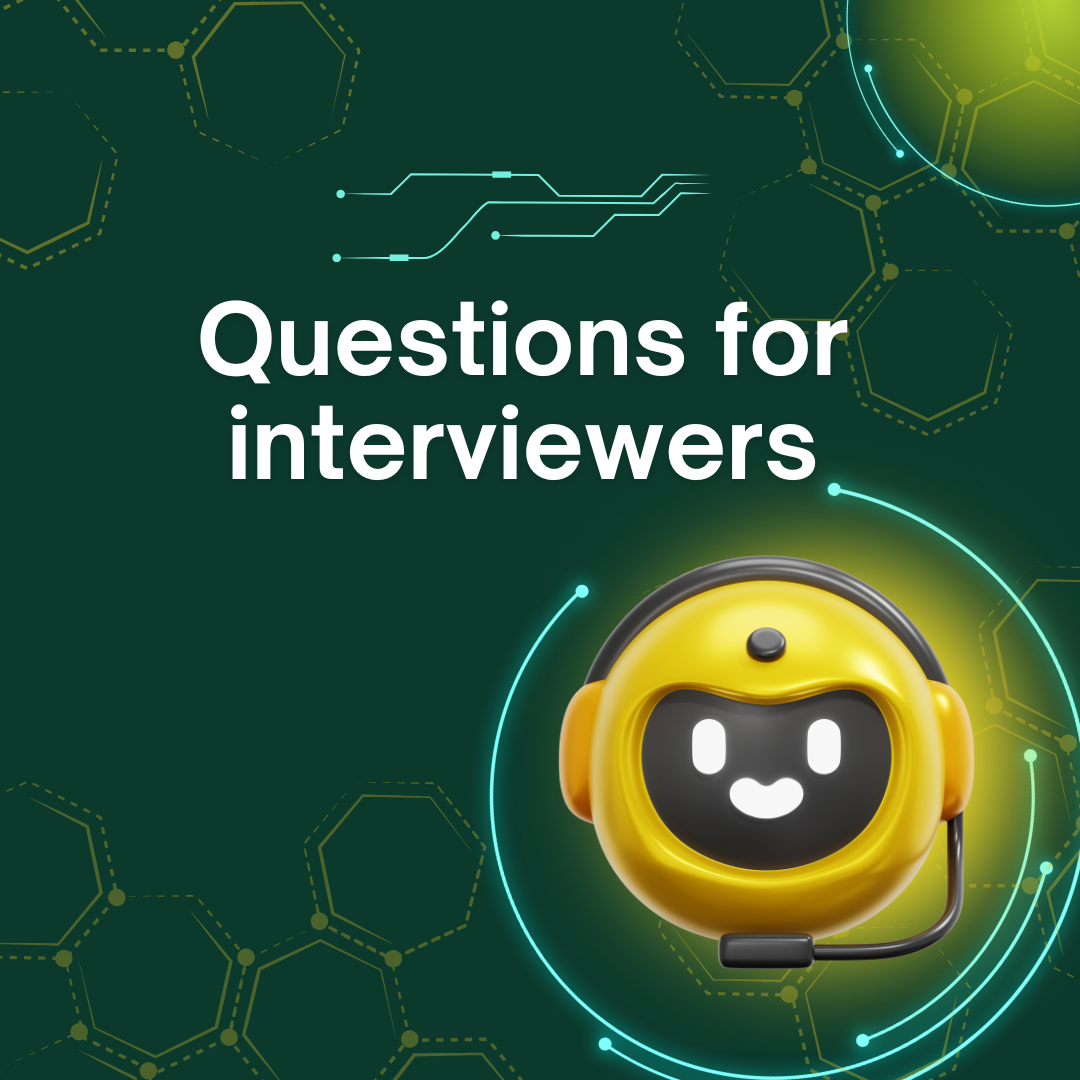
- “I have an interview at [company]. What insightful questions can I ask to gain a deep understanding of their work culture and values?”
- “What are some specific questions I can ask during my interview to uncover the management style and leadership approach of my potential new boss?”
- “Can you suggest questions that demonstrate my interest in long-term career growth and professional development opportunities at [company]?”
- “What should I ask during my interview to learn about the work-life balance policies and practices at [company]?”
- “Provide me with questions that will help me understand the team dynamics, collaboration, and communication styles within the team at [company].”
- “What are some strategic questions to ask in my interview to discover how the company supports continuous learning and skill development?”
- “Suggest questions that can reveal the company’s approach to innovation and how they encourage new ideas from employees.”
- “What should I ask to learn about the company’s performance evaluation process and how success is measured and rewarded?”
- “Give me questions that can help me understand the company’s approach to diversity, equity, and inclusion in the workplace.”
- “What questions can I ask to learn about the company’s future plans and how they align with my career goals?”
Networking and Emails
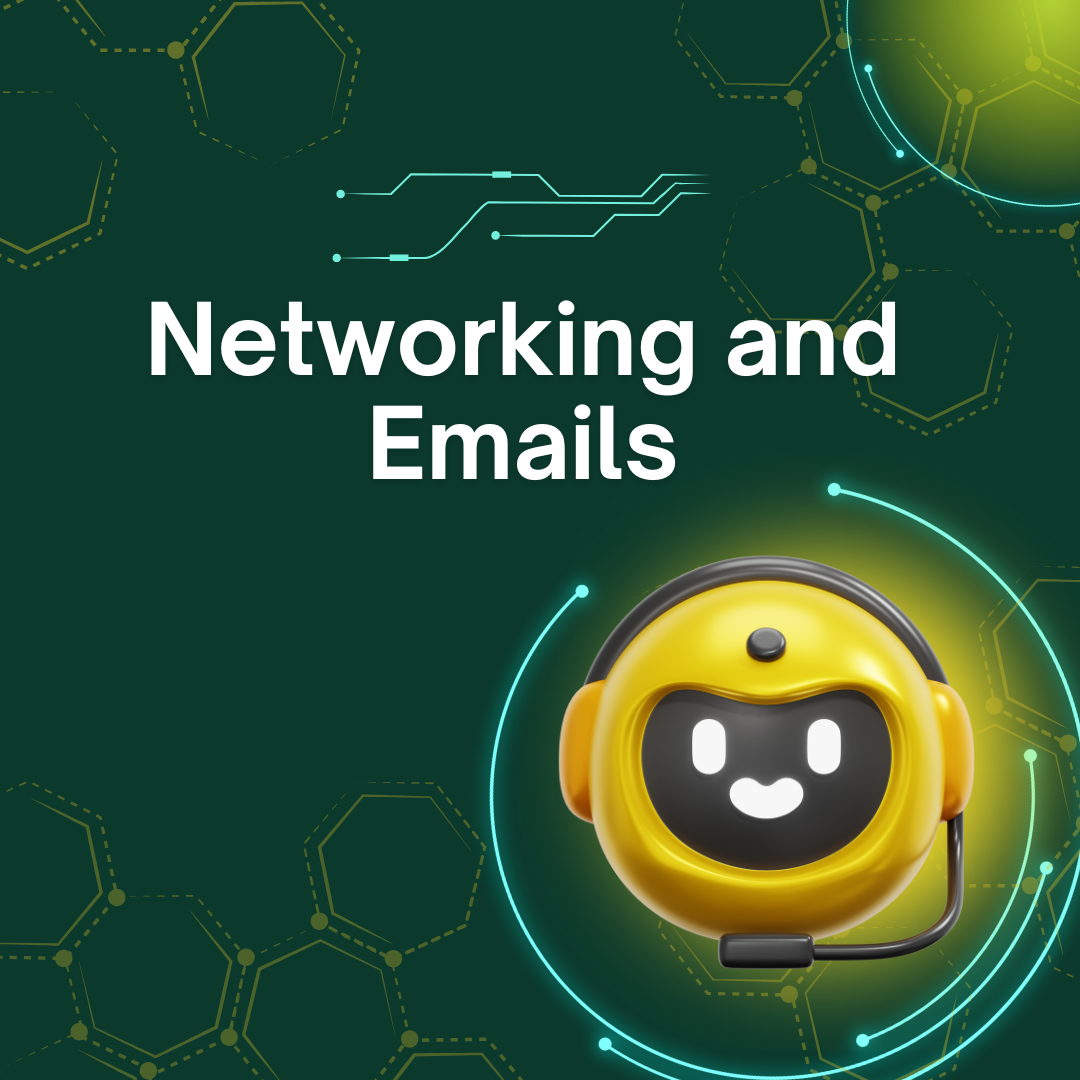
- “Help me draft a professional email to request an informational interview with someone in [industry/role] to learn about their career journey and advice.”
- “Provide a clear and concise template for following up on a job application I submitted to [company] after [time frame].”
- “What should I include in a polite and engaging ‘Thank You’ email after an interview to leave a strong impression?”
- “I recently met [person’s name] at [event]. Can you craft a LinkedIn connection request message that references our conversation and expresses my interest in staying connected?”
- “Help me draft a polite and professional email to decline a job offer while maintaining a positive relationship with the company.”
- “What should I write in a networking email to a mutual connection, asking them to introduce me to someone working in [industry or company]?”
- “Provide a template for a follow-up email after attending a networking event to nurture the connections I made there.”
- “I need to cold email someone I admire in [industry] to ask for mentorship or career advice. Can you help me draft an email that is both professional and approachable?”
- “Draft a concise email to check in with an old colleague or connection, updating them on my career and expressing interest in potential opportunities to collaborate.”
- “What should I include in an email when asking for a recommendation or referral for a job opening at [company]?”
Salary Negotiation
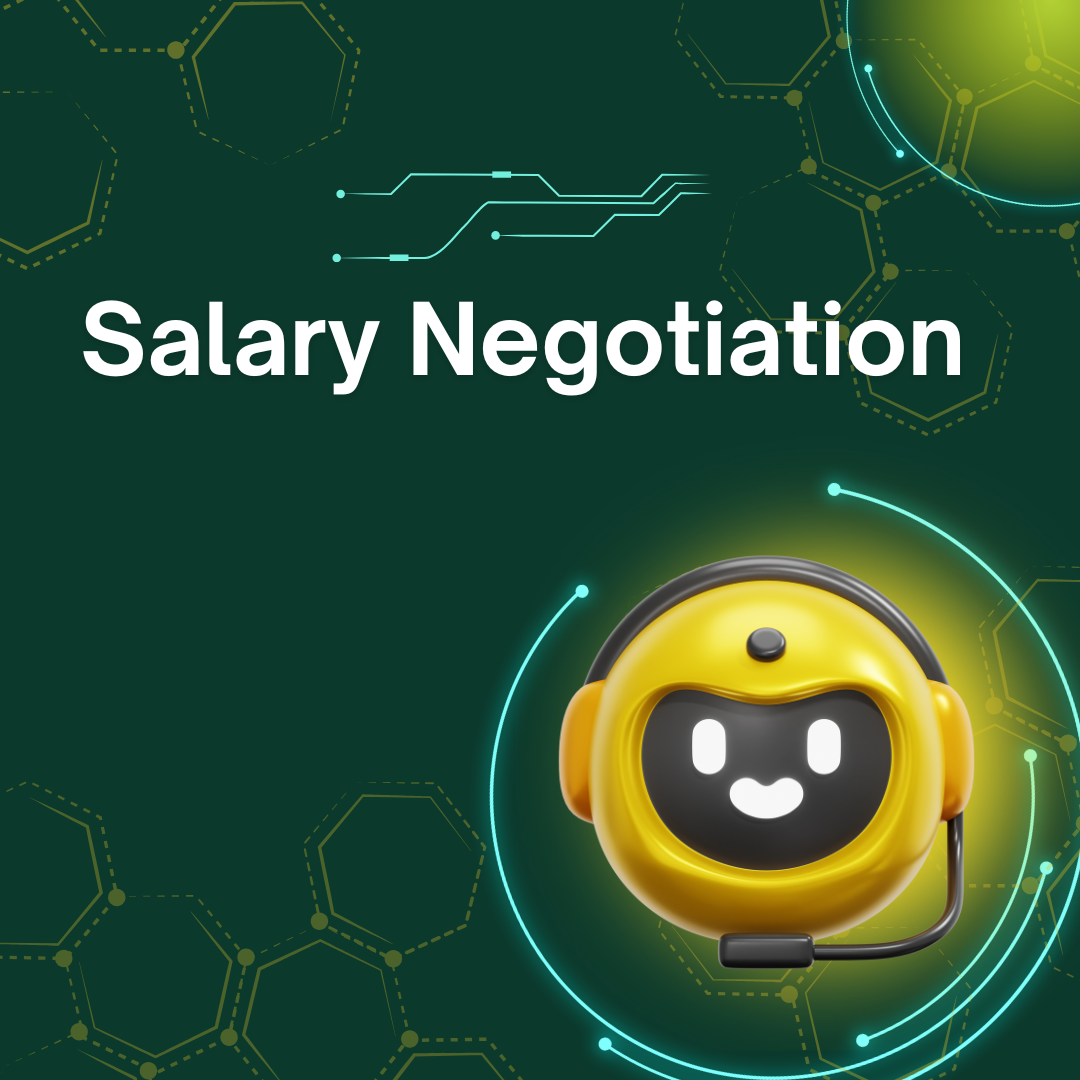
- “What are the best strategies for negotiating a higher salary when offered a position as [job title] at [company]?”
- “Help me draft a professional email to negotiate additional benefits such as remote work options, educational stipends, or increased vacation days.”
- “How can I effectively approach a conversation about requesting a signing bonus during salary negotiations?”
- “Provide me with confident yet professional phrases to use when presenting research-backed data to support my desired salary.”
- “What are some common mistakes candidates make when negotiating salary, and how can I avoid them?”
- “How should I respond if a recruiter or hiring manager says the offered salary is non-negotiable, but I still want to try?”
- “Draft a polite but assertive response to a job offer that falls below my salary expectations, while keeping the door open for negotiation.”
- “What are some ways to negotiate salary during a promotion or internal role change within the same company?”
- “Help me craft a response to counteroffer an initial salary proposal without sounding overly aggressive or ungrateful.”
- “What are some cultural or industry-specific considerations to keep in mind when negotiating salary for a role in [country/industry]?”
Remote Jobs
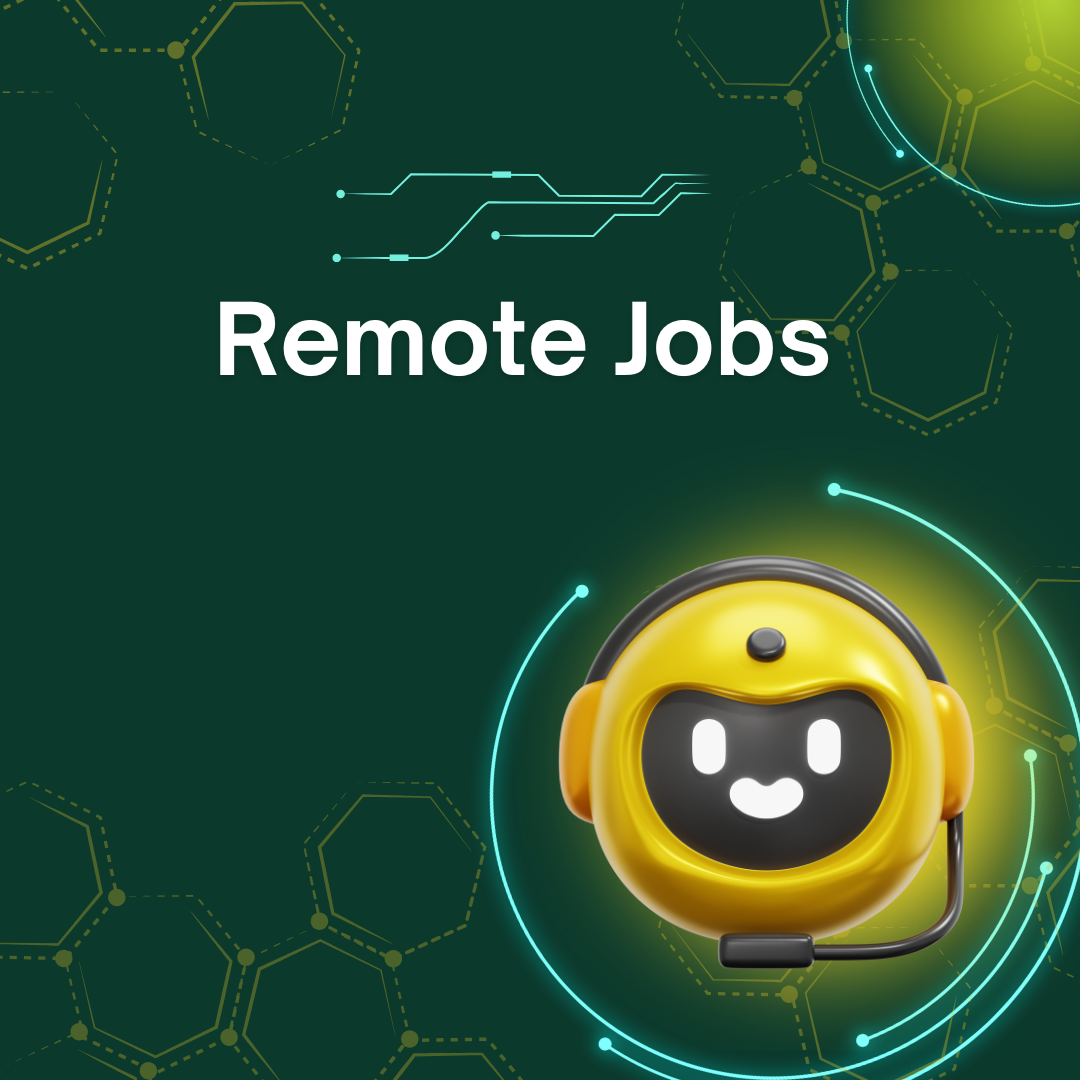
- “How can I tailor my resume to highlight skills and experiences that make me an ideal candidate for remote work?”
- “What thoughtful questions should I ask during an interview to evaluate if a remote job aligns with my work style and preferences?”
- “Help me craft a compelling response to showcase my discipline, time management, and self-motivation skills during an interview for a remote position.”
- “What strategies can I use to effectively address timezone differences when coordinating interviews or working with global teams in a remote role?”
- “What key details should I carefully review in a remote job contract, especially regarding work hours, deliverables, and communication expectations?”
- “Suggest ways to demonstrate strong communication and collaboration skills during an interview for a remote position.”
- “What tools and technologies should I highlight on my resume or during an interview to show I’m equipped for remote work environments?”
- “Provide me with tips on discussing salary and benefits specifically for remote jobs, especially when working across different regions or countries.”
- “How can I demonstrate flexibility and adaptability—essential traits for remote work—when speaking to potential employers?”
- “What red flags should I watch for when applying to or interviewing for remote positions to ensure the job is legitimate and well-structured?”
Job Application Process
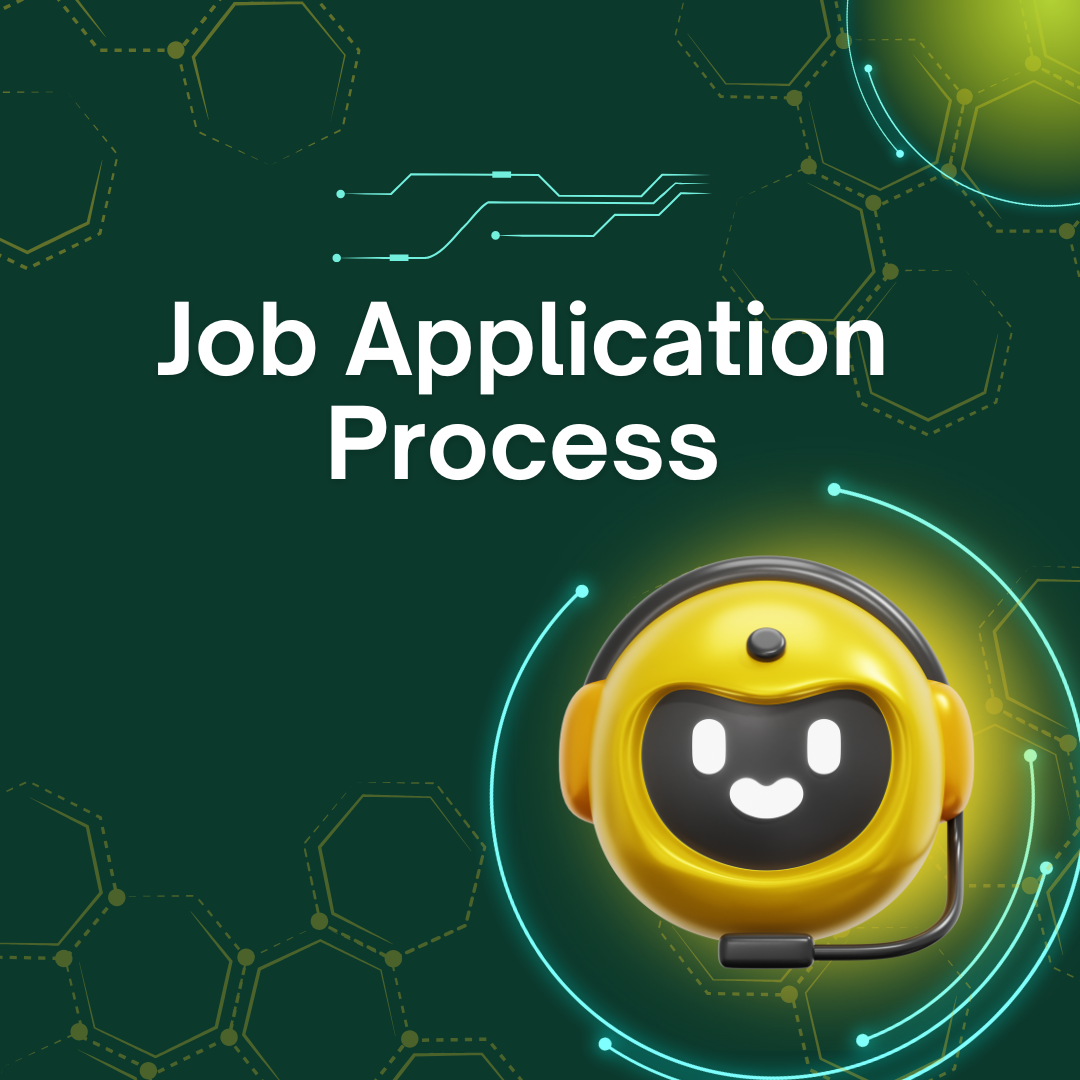
- “I’m struggling to answer this question on a job application form: [Insert Question]. Can you help me craft a professional and thoughtful response?”
- “How can I address a gap in my employment history in a way that highlights personal growth or skills gained during that time?”
- “What’s the most effective way to list multiple part-time or freelance jobs on a job application to show my diverse experience?”
- “Help me draft a clear and positive explanation for why I left my last job, ensuring it reflects well on my application.”
- “I’m applying through an ATS (Applicant Tracking System). What keywords and phrases should I include to optimize my application for a [job title] position?”
- “What’s the best way to tailor my responses in a job application to align with the specific requirements and values of [company name]?”
- “How should I approach the ‘expected salary’ question on a job application when I’m unsure of the company’s budget or my market value?”
- “I’m required to provide references on a job application. What’s the best way to choose and format them for maximum impact?”
- “What should I write in the ‘Additional Information’ section of a job application to make my submission stand out?”
- “How can I address any lack of direct experience for a role on a job application by highlighting transferable skills and achievements?”
Job Search Strategies
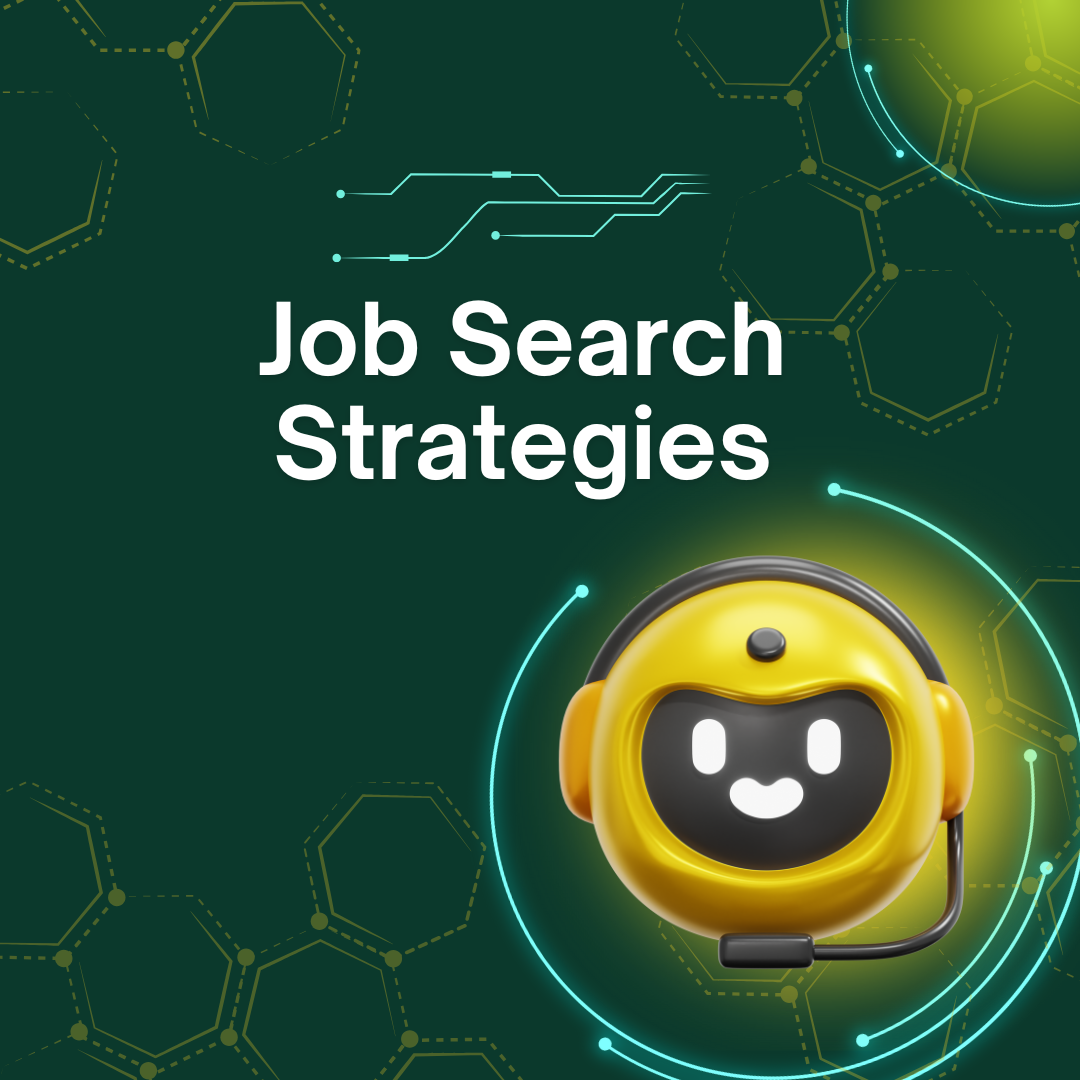
- “I’ve been job hunting for several months with little success. Can you analyze my current strategy and recommend actionable steps to improve it?”
- “I’m considering working with a recruitment agency to broaden my opportunities. What key questions should I ask to ensure they’re a good fit for my needs?”
- “How can I leverage LinkedIn more effectively to connect with recruiters and discover job opportunities tailored to my career goals?”
- “What are some underutilized or niche job search platforms that are ideal for finding opportunities in [specific industry]?”
- “I’m targeting [Company] as my dream employer. What strategies can I use to stand out and get noticed during my job search process?”
- “How can I build and maintain a strong professional network to enhance my job search and increase my chances of finding the right opportunity?”
- “I want to apply for remote positions but am unsure how to approach this effectively. What specific strategies should I follow to stand out in the remote job market?”
- “How do I identify and pursue hidden job opportunities that may not be advertised on traditional platforms?”
- “Can you guide me on creating a job search schedule or routine to stay organized, motivated, and focused on achieving my career goals?”
- “What are some ways I can optimize my personal brand (e.g., online presence, portfolio, or professional pitch) to attract more job opportunities?”
Video Interviews
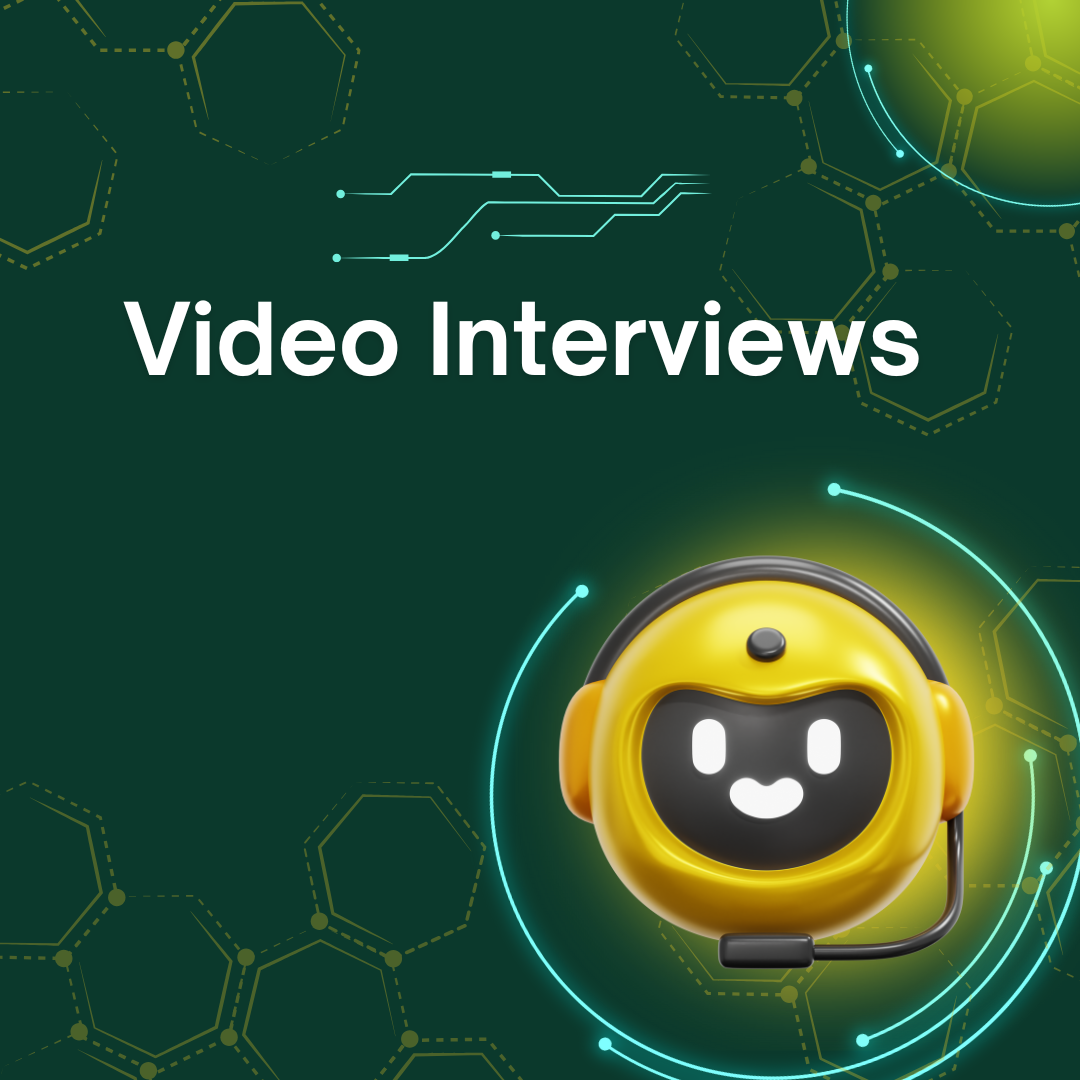
- “I have a video interview for a [job title] position. What essential technical checks should I perform to ensure everything runs smoothly?”
- “What are some effective body language and facial expression tips for leaving a positive impression during a video interview?”
- “How can I deliver a concise and engaging response to the ‘Tell me about yourself’ question in a video interview for a [specific role]?”
- “I often feel awkward or nervous during video interviews. Can you suggest practical tips to boost my confidence and maintain composure?”
- “The video interview format requires me to record my answers. How does this differ from a live interview, and what strategies should I use to excel?”
- “What’s the best way to create a professional and distraction-free background for my video interview?”
- “How can I prepare to handle unexpected issues during a video interview, such as technical glitches or interruptions?”
- “Can you provide tips for making a strong first impression on camera, including lighting, wardrobe, and posture?”
- “What questions should I ask the interviewer in a video interview to show genuine interest and engagement?”
- “How should I practice for a video interview to refine my tone, timing, and clarity when speaking on camera?”
Workplace Culture and Fit

- “I have multiple job offers. What key factors should I consider to evaluate which company’s culture and environment align with my personal and professional values?”
- “What strategies can I use during an interview to assess if the company’s mission, values, and vision resonate with my own?”
- “What specific questions should I ask to gain insight into the work-life balance and flexibility offered by a potential employer?”
- “Diversity and inclusion are important to me. What signs or questions can help me evaluate a company’s commitment to these values during the hiring process?”
- “I require specific workplace accommodations to thrive. How should I approach discussing these needs while ensuring a positive impression during interviews?”
- “How can I use resources like Glassdoor, LinkedIn, and employee reviews to research and understand a company’s workplace culture before accepting a job?”
- “What are some subtle cues to look for during an office tour or virtual meeting that reveal the company’s culture and how employees are treated?”
- “How do I navigate situations where the company culture seems strong but may not align with my personal work style or values?”
- “I want to work in a collaborative environment. How can I ask targeted questions to assess the team dynamics and communication style during interviews?”
- “What are some red flags to watch for in job descriptions, interviews, or during the onboarding process that might indicate a toxic workplace culture?”
Long-Term Career Planning
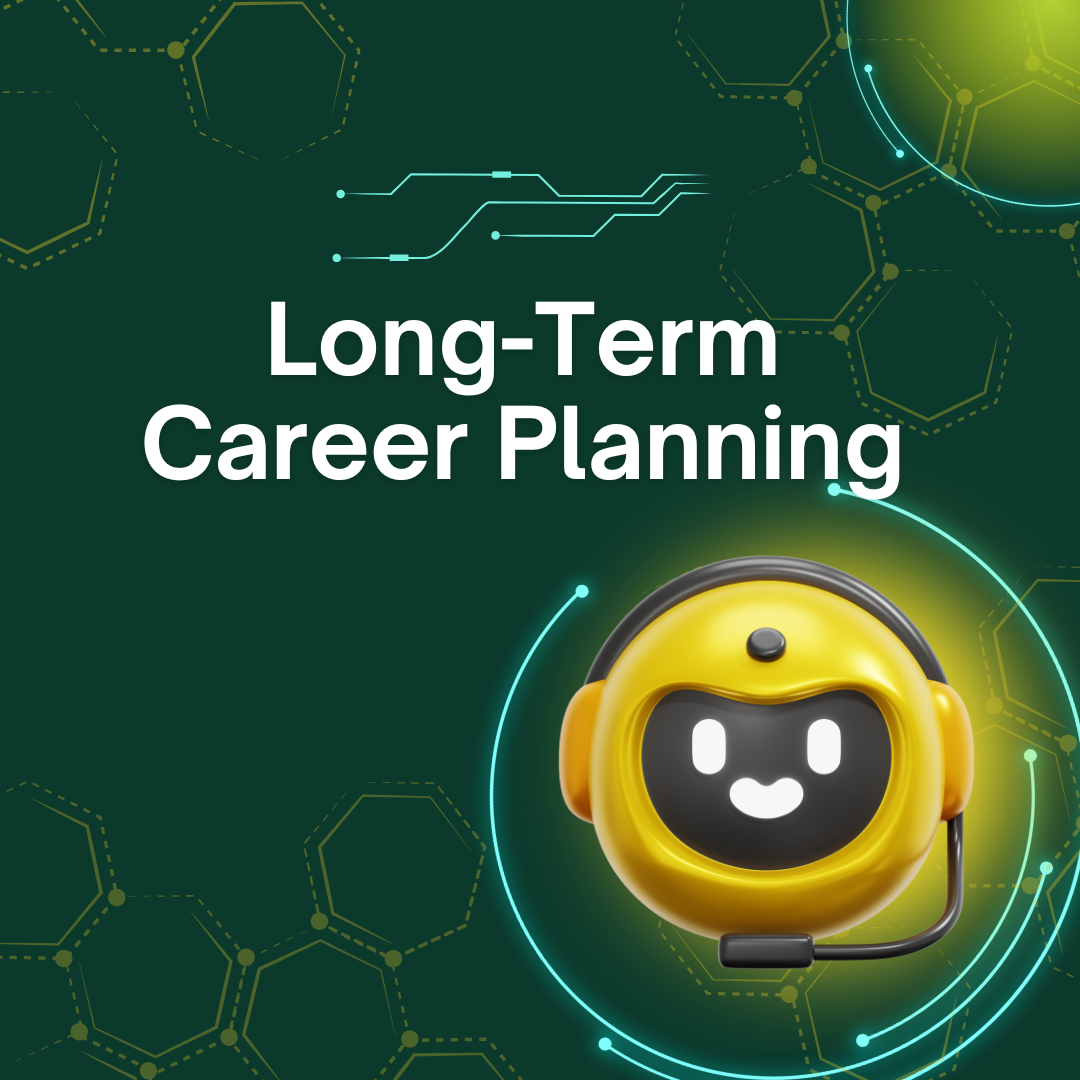
- “I’m unsure about my long-term career goals. Can you help me create a step-by-step plan to explore and define my career aspirations?”
- “What strategies can I use to regularly assess and update my career plan to ensure it aligns with my evolving goals and the job market?”
- “How can I identify the key skills and certifications I need to stay competitive and grow in my desired industry over the next 5-10 years?”
- “I want to transition into a leadership or managerial role in the future. What specific actions and habits should I adopt now to prepare?”
- “How do I find and approach a mentor who can guide me in achieving my long-term career goals?”
- “I’m considering a career pivot into [Industry/Role]. What practical steps should I take to build the necessary experience and connections?”
- “What are some effective ways to network with professionals in my target industry to prepare for a career shift?”
- “I’d like to create a professional development plan that includes both short-term milestones and long-term goals. Can you guide me on how to structure it?”
- “How can I stay motivated and committed to my long-term career goals, especially when facing challenges or setbacks?”
- “What books, resources, or tools would you recommend for someone aiming to build a fulfilling and sustainable long-term career?”
Various interview scenarios
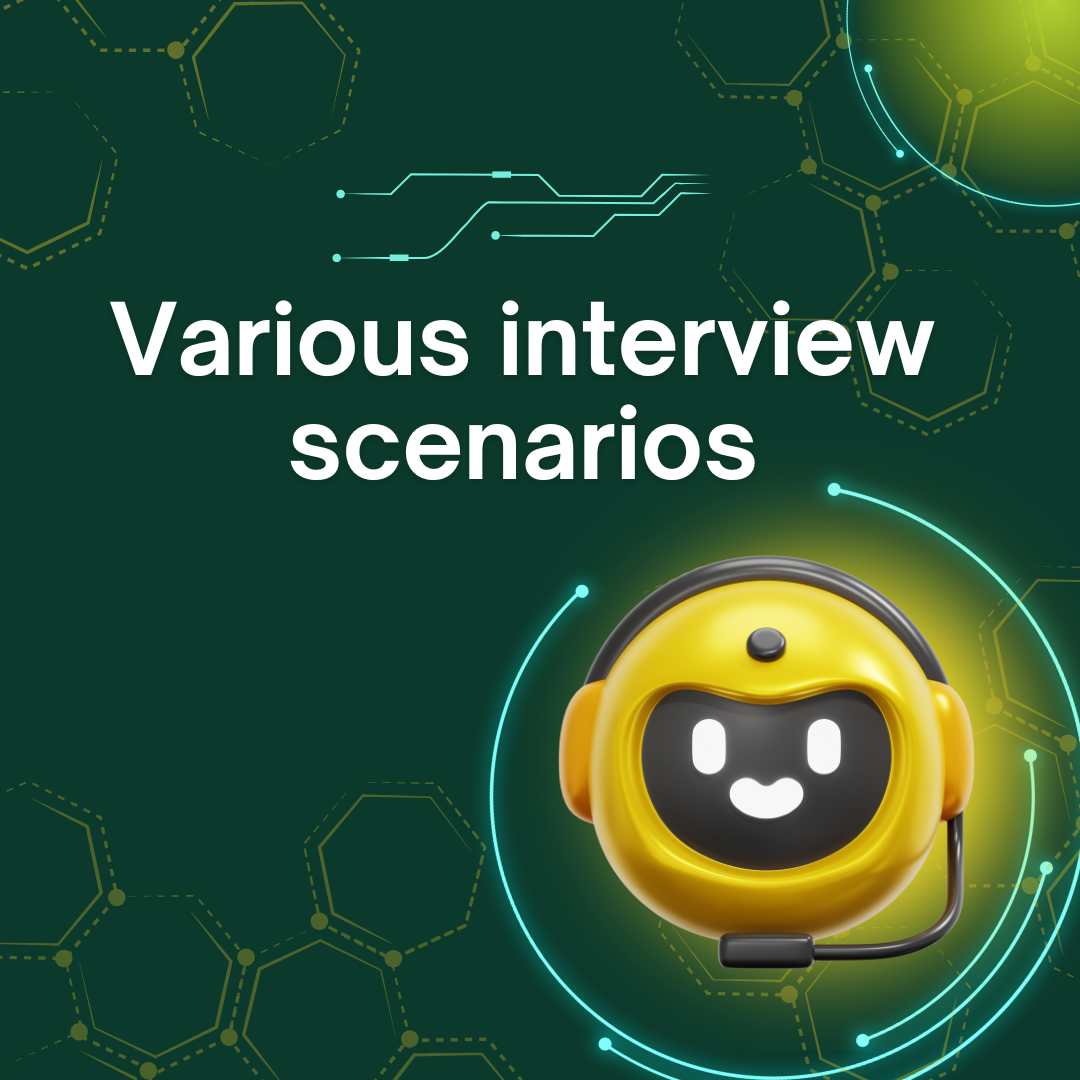
- “I’m scheduled for the [interview round] for the [job title] role at [company/type of company]. Given the focus on [specific skill or responsibility from job description], what specific questions should I prepare for and how can I frame my answers to stand out?”
- “I have an upcoming interview with [role of interviewer] for the position of [job title] at [company/type of company]. Based on my background in [your expertise], what key achievements or skills should I highlight to make a strong impression?”
- “I’ll be part of a group interview with [roles of interviewers] for the position of [job title] at [company/type of company]. How can I effectively stand out in this format while demonstrating my ability to collaborate?”
- “I’m preparing for a case study interview for the [job title] role at [company/type of company]. The task involves [describe the case study]. Can you guide me on structuring my response and showcasing my problem-solving skills?”
- “I’m attending a technical interview for the [job title] role at [company/type of company]. What types of technical challenges or scenarios should I expect based on [your expertise or job description], and how can I best prepare?”
- “I’ll be delivering a presentation as part of my interview for [job title] at [company/type of company]. The topic is [presentation topic]. How can I tailor my presentation to demonstrate my expertise and align it with the company’s goals?”
- “I tend to struggle with [specific issue, e.g., nerves, stuttering] during interviews. For my upcoming interview for [job title] at [company/type of company], can you provide actionable tips to project confidence and maintain composure?”
- “I’m interviewing for [job title] at [company/type of company] and anticipate behavioral questions. Can you suggest effective ways to structure my answers using techniques like STAR or CAR?”
- “I have been asked to complete a technical test as part of the interview process for [job title] at [company/type of company]. How can I showcase my thought process and technical skills effectively in my responses?”
- “I have a back-to-back interview scheduled with [HR/Recruiter’s role] and [Technical Interviewer/Manager’s role] for [job title]. How should I adapt my approach and focus points for each stage of the interview?”
- “I’m preparing for a second interview with [role of interviewer] for [job title] at [company/type of company]. Since I’ve already covered the basics in the first round, what advanced topics or questions should I focus on for this stage?”
- “I have a virtual interview for [job title] with [company/type of company]. What technical setup, body language, and communication strategies should I use to make a strong virtual impression?”
- “I was recently laid off from my previous role as [job title] at [company/type of company], and I’m interviewing for [job title] at [company/type of company]. How can I frame my layoff positively when discussing it with the interviewer?”
- “I’m preparing for an interview for [job title] at [company/type of company], but I’m worried about addressing my lack of experience in [specific skill]. How can I frame my transferable skills and potential to overcome this gap?”
- “I’m applying for a leadership role as [job title] at [company/type of company]. What kind of situational questions about leadership challenges should I anticipate, and how can I prepare impactful responses?”
- “I need to explain a career gap during my interview for [job title] at [company/type of company]. How can I reframe this gap to emphasize growth or skills gained during that time?”
- “I’m in the final round of interviews for [job title] at [company/type of company]. What negotiation strategies should I prepare for discussing compensation and benefits?”
- “I’ve been asked to participate in a role-play exercise for [job title] at [company/type of company]. The scenario is [describe the exercise]. How can I approach this to showcase my adaptability and communication skills?”
- “I’ll be meeting with multiple stakeholders (e.g., [roles of interviewers]) in a panel interview for [job title] at [company/type of company]. What strategies should I use to engage each interviewer and address their priorities effectively?”
- “I’m interviewing for a highly competitive role as [job title] at [company/type of company]. How can I use my answers to differentiate myself and emphasize my unique qualifications?”
Conclusion
These prompts empower candidates to:
- Anticipate and prepare for interview questions based on the role, company, and responsibilities.
- Showcase their strengths, adaptability, and expertise effectively.
- Handle potential challenges, such as addressing layoffs, skill gaps, or performance anxiety, with poise.
- Present themselves as thoughtful, confident, and well-prepared professionals.
Ultimately, these prompts serve as a roadmap to help candidates navigate interviews with a strategic approach, enabling them to leave a lasting positive impression and maximize their chances of securing the job. By addressing these prompts, individuals can take proactive steps toward career success while demonstrating their value to potential employers.
